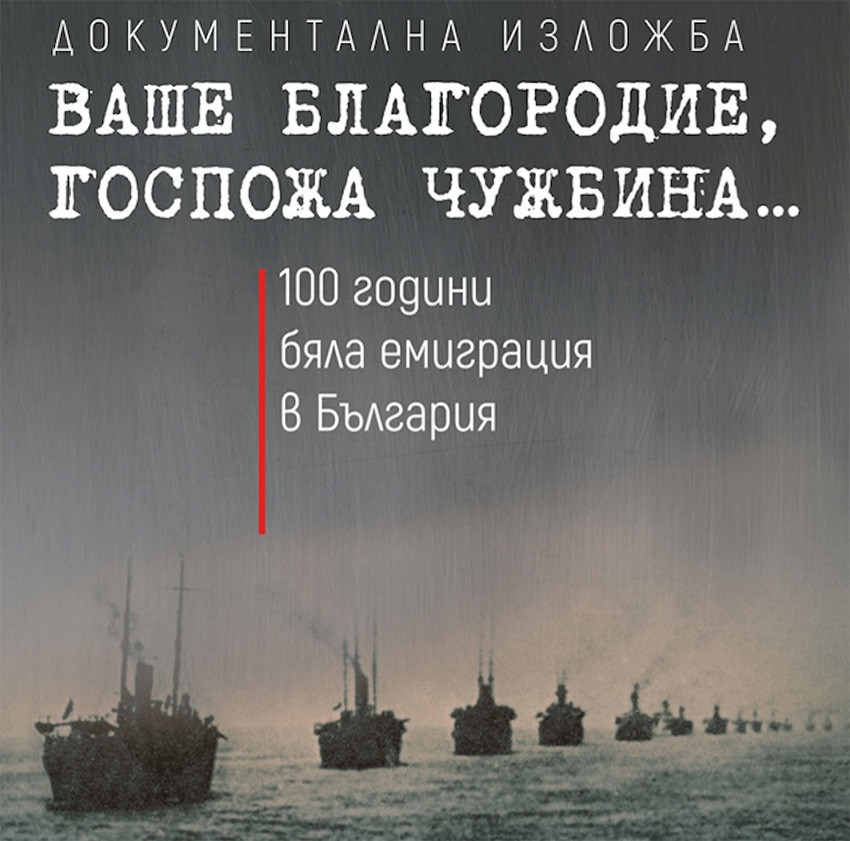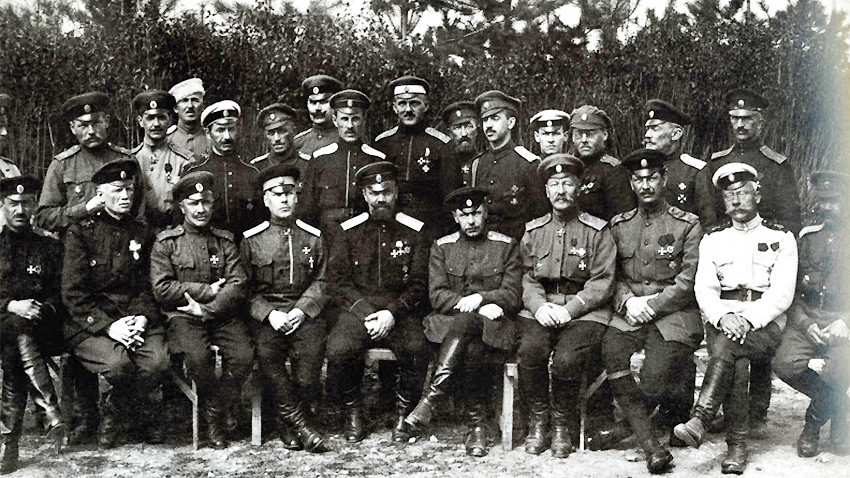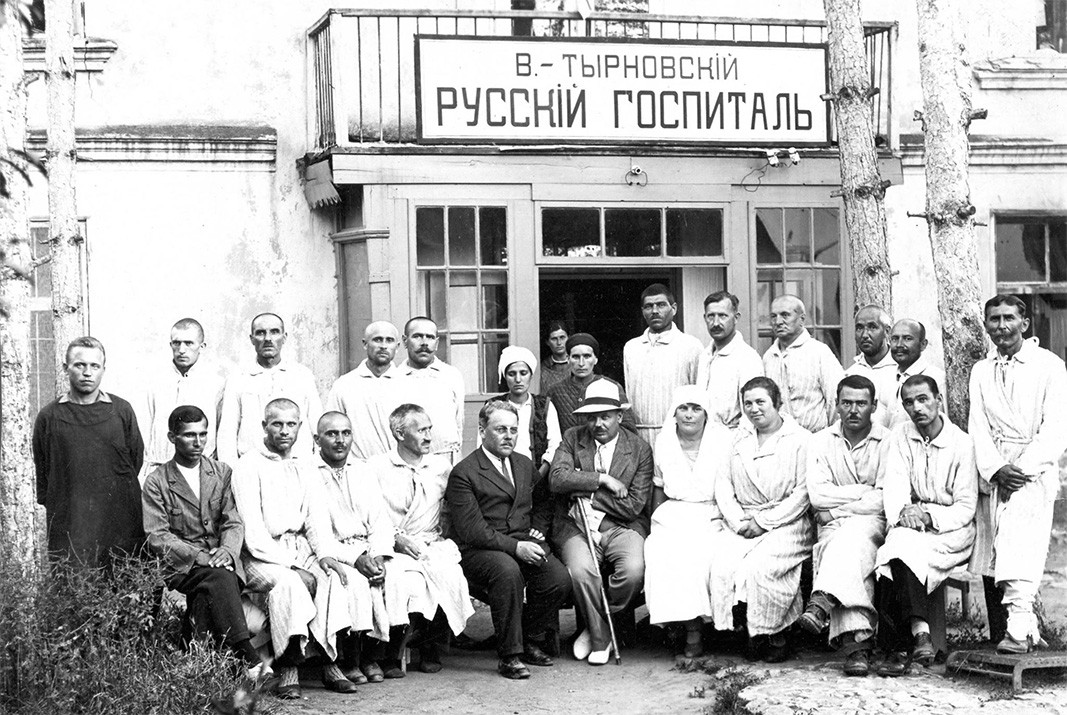The Bolshevik revolution in Russia and the ensuing civil war prompted thousands of noblemen and intellectuals to flee their homeland to escape the rising violence. Many of them found refuge in Bulgaria, while others continued to Yugoslavia and especially to the much-cherished Paris.

The State Archives Agency has chosen the verse "Vashe Blogorodie, Gospozha Chuzhbina" (Your Honour, Lady Foreign Land) from the famous song by Soviet-era singer-songwriter Bulat Okudzhava for the motto of its exhibition, which marks the 100th anniversary of the arrival of the White Guard emigration in Bulgaria. In a documentary, the exhibition traces the path of the White Guards/White Army members to this country, the government's decision to shelter them and the lasting traces of Russian refugees in Bulgarian education, science and culture.
"The culmination of this process which took several years came in 1921, when Pyotr Wrangel's corps was defeated and its units left Russia via Sevastopol," explains Mikhail Gruev, chairman of the State Archives Agency.

“Not only the military emigrated, but also hundreds of thousands of civilians - officers with their families, doctors, teachers, in general, the intelligentsia fleeing the Red Terror. Many of these people found their second homeland in the face of Bulgaria. These are individuals who have left their mark in almost all sectors of the cultural, economic, and scientific life of Bulgaria in the interwar period. These people a very small part of whom are military, in fact have engraved their names in modern Bulgarian culture and science."
Bulgaria opened its borders and its heart to the White Guard officers seeking refuge from the executions and acts of barbarism in their own country. Initially, they were housed in barracks and military schools, and later scattered throughout the country.

"In the beginning, the Russian emigration numbered almost 100,000 people, but over the years there were about 20,000 left," Mikhail Gruev continues. “The closeness between cultures and languages, the common Orthodox faith are part of the factors that influence them to choose Bulgaria as a second home. The government of Alexander Stamboliiski (1919-1923) also made great efforts to accommodate and feed them, to create some kind of employment for the men. Thus, Bulgaria, which after the First World War was in a difficult situation - oppressed by hundreds of thousands of refugees coming from the remote territories, turned out to be an extremely hospitable country. It took away from its own bread to give to others.”
And they rewarded her with creative work in areas where they could contribute as broad-minded, educated and culturally rich individuals. Some of them play a fundamental role in art and other public spheres, while many doctors were struggling with the great epidemics of the time such as typhus, tuberculosis, and were not afraid to go to the Turkish population in the Rhodopes and raise medicine and sanitation to a higher level.

However, what happened to the White Guardsmen during World War II when Bulgaria became an ally of Germany, and how did the government treat people who had fled the same political regime after September 9, 1944?
"It is a fact that a small part of them who were already settled in Bulgaria joined the corps of Vlasov, fighting on the side of the Nazis”, Mikhail Gruev says. “With the occupation of our country by the Red Army and afterwards, the Russian emigrants were treated as an unfriendly population, and the White Guards organizations were liquidated. The authorities were very suspicious of all of them and the White Guardsmen were subjected to persecution."
Your Honour, Lady Separation,
We have been friends with you for a long time, that’s it,
Your Honour, Lady Foreign Land.
You embraced me passionately, but went away without love, the bard Bulat Okudzhava sings in his famous song “Vashe Blagorodie”.
"Bulgaria became a second home for them, but at the same time this thirst, this longing for their real home remained very much alive. That is why we feel that this verse most accurately portrays the dual status in which they find themselves in our country", Mihail Gruev adds.
English version Rositsa Petkova
Photos: The State Archives AgencyFrom 16 September, the History Museum in Panagyurishte will be hosting the original Panagyurishte Gold Treasure. The priceless find will be displayed in the museum’s secure vault hall, where it can be seen until October 23. The treasure will be on..
On September 14, the Bulgarian Orthodox Church bows down before the cross on which Jesus Christ was crucified . The Exaltation of the Holy Cross of the Lord or Cross Day is one of the 12 great Christian holidays. It is one of the four days..
Today, Bulgaria celebrates the 140th anniversary of the Unification of the Principality of Bulgaria and Eastern Rumelia. The center of the festivities is Plovdiv, where on this day in 1885, after the entry of the Golyamo Konare detachment into the..

+359 2 9336 661
